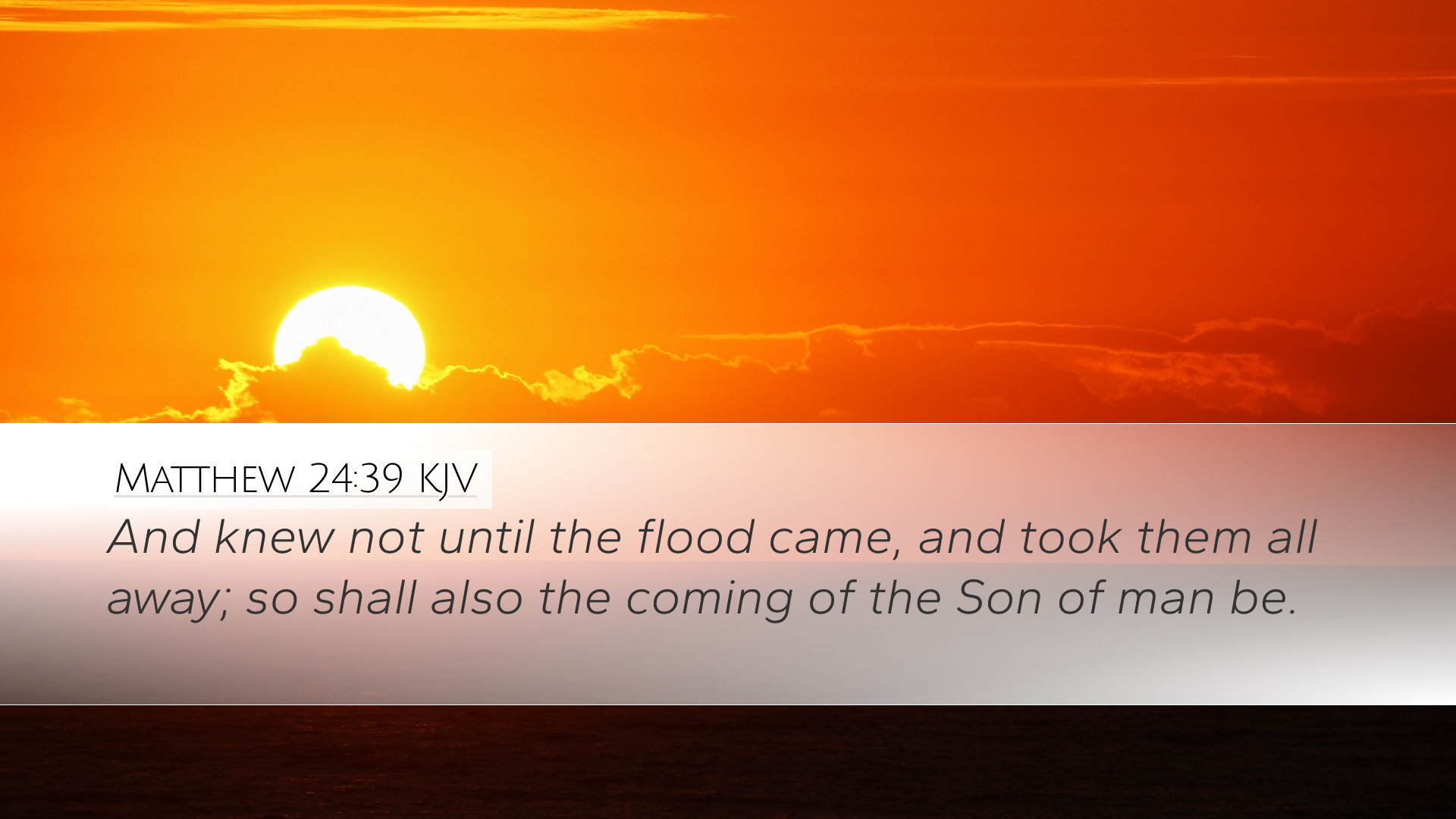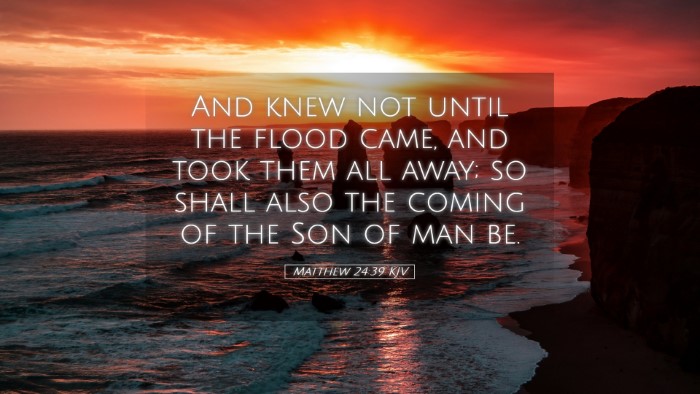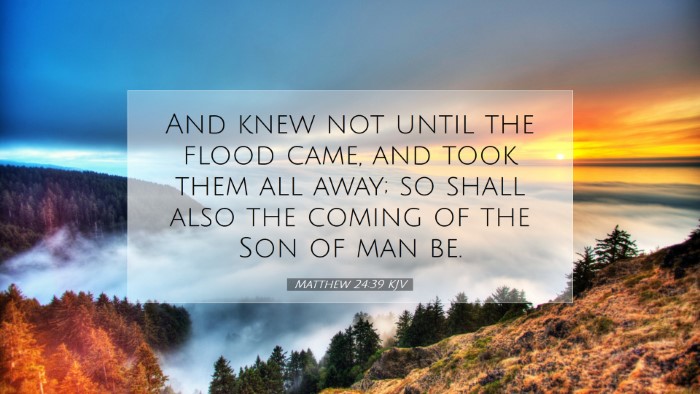Commentary on Matthew 24:39
Verse Text: "And knew not until the flood came, and took them all away; so shall also the coming of the Son of man be."
Introduction
The verse Matthew 24:39 serves as a vivid reminder of the unexpected nature of the Second Coming of Christ. It draws parallels with the flood during the days of Noah, where people were caught unaware. This theme of readiness and the suddenness of divine judgment is vital in understanding biblical prophecy and eschatology.
Contextual Setting
Matthew 24 is part of the Olivet Discourse, where Jesus elaborates on the end times and signs of His returning glory. The discourse begins with the disciples asking Him about the destruction of the temple and the signs of His coming. Through various illustrations, Jesus emphasizes preparedness and alertness.
Commentary Insights
1. The Days of Noah - A Parallel
Matthew Henry: In his analysis, Henry observes that the ignorance of those living in Noah's time is key to understanding the forgetfulness of modern man about impending judgment. Just as the people during Noah's day went about their lives ignoring warnings, so too shall many be unprepared for Christ’s return.
Adam Clarke: Clarke emphasizes that the nature of the flood was such that it came suddenly, akin to the unexpected return of the Son of Man. People were engaged in daily activities, preoccupied with the mundane. Clarke points out the necessity of constant vigilance in spiritual life.
2. The Unpreparedness of Many
Albert Barnes: Barnes brings attention to the spiritual unpreparedness that characterizes those who are taken by surprise. He notes that many engage in their daily lives, oblivious to the spiritual reality of their situation. The reference to "took them all away" signifies a complete removal, highlighting the totality of the judgment to come.
Matthew Henry: He further notes that this warning is for us today, urging believers to be vigilant against apathy. Henry stresses that faith should result in a life of readiness and action, underlining the need for a vibrant faith that prepares for the coming of Christ.
3. The Nature of Christ’s Coming
Adam Clarke: Clarke discusses the nature of the Second Coming, indicating that it will not be a subtle event but one of universal significance. He reflects on the suddenness of Christ’s return and cautions against complacency.
Albert Barnes: Barnes notes the distinction between the coming of Noah's flood and the return of Christ. Where the flood was a localized event that affected only those who remained indifferent, Christ’s coming will affect all humanity. It is a call to awareness that transcends mere acknowledgment, inspiring action and readiness.
Theological Implications
Matthew 24:39 emphasizes the nature of divine judgment and the necessity for readiness. Theologically, this passage serves as a profound reminder that God's interactions with humanity should engender a sense of urgency and a changed lifestyle among believers.
1. Imminent Return of Christ
This verse affirms the doctrine of the imminent return of Christ. Believers are called to live in light of this truth, with the confidence that God will act in accordance with His promises.
2. Responsibility of the Believer
There is a clear responsibility placed upon believers to be watchful. This involves cultivating a relationship with Christ that prioritizes spiritual readiness over worldly distractions.
3. Eschatological Hope
While the message of judgment can be alarming, it ultimately points toward hope. The certainty of Christ's return assures believers that injustice and evil will not prevail indefinitely. The coming of the Son of Man brings the hope of restoration and eternal life.
Practical Applications
As students, pastors, and scholars reflect on Matthew 24:39, several key applications arise:
- Be Vigilant: Cultivate a lifestyle of constant preparedness, understanding that spiritual complacency can lead to devastating consequences.
- Engage in Discernment: Discern the signs of the times, as Jesus urges His followers to be aware of the cultural and spiritual climates that surround them.
- Prioritize Spiritual Growth: Focus on developing one's relationship with God through prayer, study of Scripture, and community engagement, ensuring readiness for Christ's return.
- Share the Hope: Encourage others to consider their spiritual state. Just as Noah warned of impending judgment, so too must believers herald the return of Christ with urgency.
Conclusion
Matthew 24:39 serves as a powerful reminder of the necessity of vigilance and preparedness in the life of the believer. By reflecting on the lessons from the days of Noah, we are called to rise above the distractions of the world and prepare for the hopeful return of the Son of Man. This call to readiness not only transforms our own lives but equips us to be witnesses of God's grace and His imminent return.


